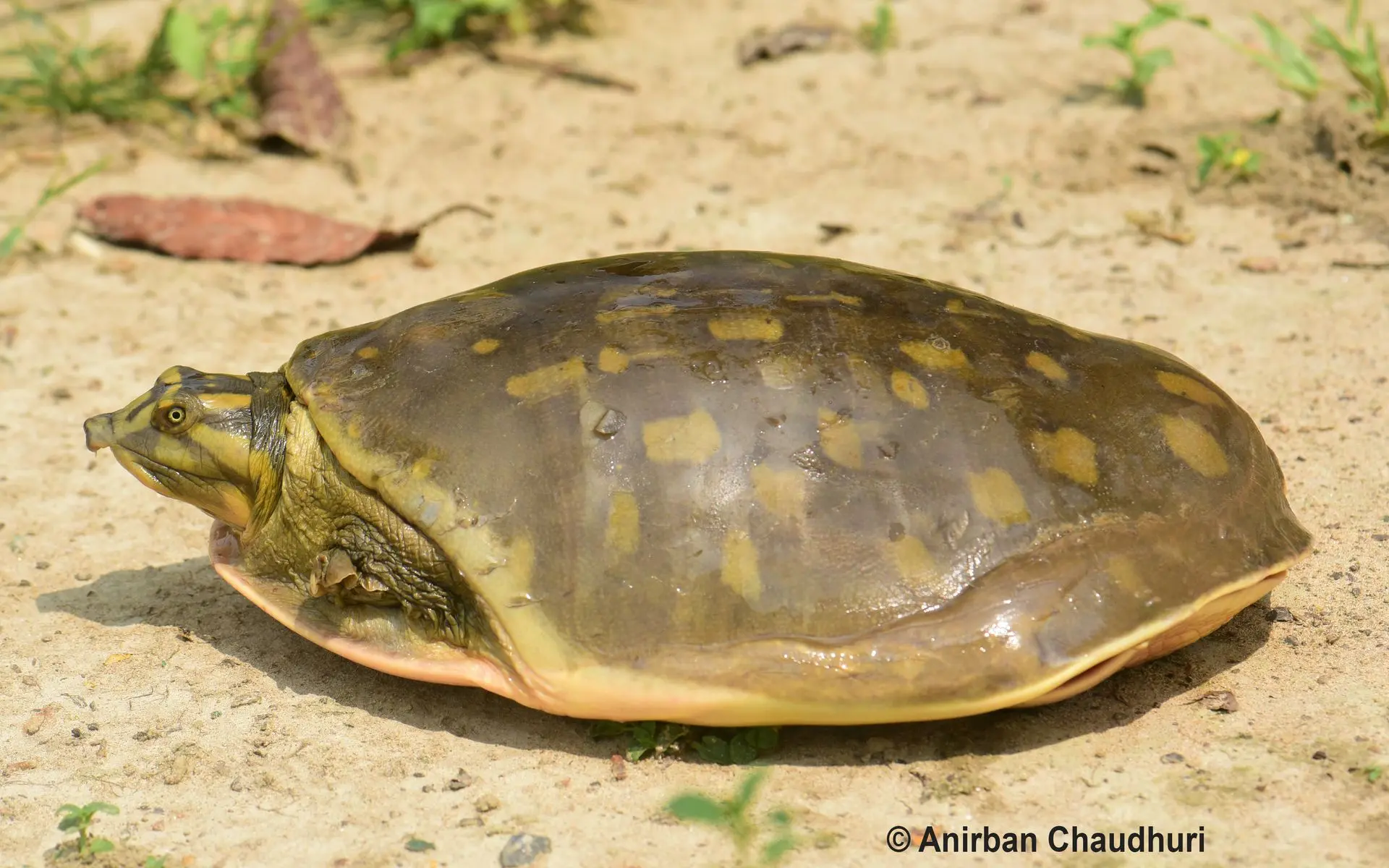Indian Flapshell turtle (Lissemys punctata)
Taxonomy
Domain: Eukaryota
Kingdom: Animalia
Phylum
: Chordata
Class : Reptilia
Order : Testudines
Suborder: Cryptodira
Family : Trionychidae
Genus :
Lissemys
Species : L. punctata (Lacépède, 1788)

Common Names
Spotted Pond Turtle, Black Pond Turtle, Hamilton’s Terrapin.
Conservation Status
IWPA : Schedule I
Cites : Appendix II
Geographical Distribution
The Indian flapshell turtle is found in India, Pakistan, Nepal, Bangladesh, Sri Lanka, Myanmar and the Andaman and Nicobar Islands. It inhabits several river systems, including the Irrawaddy River in Myanmar, the Salween River in Myanmar, the Indus River in Pakistan and Bangladesh and the Ganges River in Bangladesh. The species can also be found in various protected areas such as the Purna River in India, Dudhwa Tiger Reserve in Uttar Pradesh, Chambal National Park in Madhya Pradesh, Kaziranga National Park in Assam, Chilika Lake, Harike Lake in Punjab and Keoladeo National Park in Rajasthan.
General Information
The Indian flapshell turtle nests during various periods throughout the year, depending on the habitat and location. Typically, nesting begins from late summer to the monsoon season, which spans from June to November. After mating, the female chooses a suitable nesting site, usually in swampy areas with soil that is exposed to sunlight. Indian flapshell turtles may lay eggs 2 to 3 times a year, with clutch sizes ranging from 2 to 16 eggs. After laying, the eggs are generally buried in the soil for protection. Young turtles become reproductively mature at the age of 2 or 3 years. These turtles inhabit shallow, calm, and often stagnant waters, preferring those with sand or mud bottoms as they tend to burrow. The species is well adapted to drought conditions. Indian flapshell turtles are omnivores, feeding on a variety of foods, including frogs, fish, shrimp, snails, aquatic vegetation, plant leaves, flowers, fruits, grasses and seeds.
Threats
- Illegal hunting and poaching for their meat, skin and blood, which are used in traditional medicine, leather and potions.
- Habitat loss due to construction of dams, barrages and cultivation along river banks.
- Water pollution.
- Human intrusion and disturbance due to recreational activities.
Aquatic Species / Turtles / Indian Flapshell turtle
Last Updated: September 12, 2025